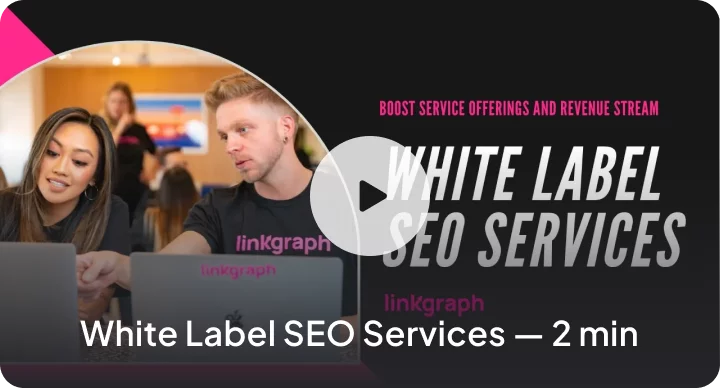10 Steps to Launching a Successful SEO Campaign
Learning the ins and outs of what makes up SEO campaigns can mean more keyword rankings, more organic traffic, and more real people browsing the landing pages of your website.
If you want to launch a successful SEO campaign, this post will break down the necessary steps to get you there.
Learning the ins and outs of what makes up SEO campaigns can mean more keyword rankings, more organic traffic, and more real people browsing the landing pages of your website.
Here’s how to do it.
What is an SEO Campaign?
AnSEO campaign is the coordination and execution of SEO strategies in order rank higher in search engine results pages. There may be a variety of people who are involved in executing an effective SEO campaign, from writers, to web developers, to anSEO agency, and more.
Parts of an Effective SEO Campaign
SEO is multi-disciplinary. As a result, there is no one-size-fits-all SEO campaign.
Some parts of SEO campaigns may include:
- On-Page SEO – On-Page SEO campaigns are focused primarily on improving the relevance and quality signals of web content so it is more likely to be promoted for relevant keywords.
- Off-site SEO – This includes strategies like link building, digital PR, guest posting, reputation management and more.
- Technical SEO – This involves optimizing the technical performance of your website as well as ensuring all of the HTML meta data is optimized for search engine crawlers
- Web Development – This involves working on the backend of a website to improve page load times and speeds as well as site architecture and more
The most successful SEO campaigns will be tailored to the website’s unique goals, industry competitors, budget, size, and its current technical strengths and weaknesses.
But one quality that all successful SEO campaigns share is that they take a holistic approach, combining the various parts of search engine optimization to drive qualified organic traffic to a website.
1. Define Campaign Goals and KPIs for Your SEO campaign
Before you can start any SEO campaign, you need to define your goals and objectives.
What do you want to achieve with your SEO? Do you want to increase traffic to your website? Increase leads and sales? Improve your Domain Authority score? Improve your website’s rankings for a specific keyword in the search engine results pages (SERPs)?
Your goals and objectives should be specific, measurable, achievable, relevant, and time-bound. Having clear goals is the only way to measure whether or not an SEO campaign was, indeed, successful.
Having clear Key Performance Indicators (KPIs) is also essential to understand whether you actually achieve your campaign objectives. Some common SEO KPIs include
- Organic search traffic: The number of visitors who come to your website from search engines, and the percentage of that traffic that is organic (i.e. not paid for)
- Ranking Positions: Tracking the position of your website in search engine results pages (SERPs) for specific keywords is a good way to measure how well your SEO strategy is working.
- Keyword rankings: The total number of keywords your website ranks for in search engines, and whether you’re targeting the right keywords to reach your target audience
- Domain Authority: The overall site authority of your website as measured through backlinks and the total number of unique referring domains pointing to your web pages
- Bounce rate: The percentage of visitors who leave your website after viewing only one page
- Impressions: The number of users who see your SERP result, even if they don’t click on it
- Conversion rate: The percentage of visitors who take a desired conversion action, such as filling out a contact form, subscribing to a email list, or making a purchase
2. Perform an SEO Audit of Your Website Before Campaign Launch
Before you start mapping our your SEO strategy, you need to have a solid understanding of where your website currently stands.
This is where an SEO audit can be very helpful. Use the Site Auditor tool in SearchAtlas to get a high-level overview of the technical, content, speed, and crawling statistics of your website.
This high-level SEO audit report will give you a larger sense of whether your SEO campaign will need to include on-page content optimization, technical SEO, web development work, and more.
Then, look to the “Issues,” tab to determine what requires action. This more detailed list of recommendations will help you determine the specific tasks of your SEO campaign.
Before you get started planning out your SEO strategy, make sure you know the answers to the following questions:
- Are the pages of my website accessible to search engine crawlers? If not, use XML sitemaps and robots.txt files to control how and when pages are crawled and indexed.
- Do I have content on my website that is relevant to the keywords I want to rank for? If not, content creation will need to be a major focus of your SEO campaign.
- Does my backlink profile contain toxic links from spammy websites? If so, leverage the disavow tool or link building services to nullify the impact of those low-quality backlinks
These high-level issues are common among websites that are struggling to rank in search engines. Making sure that your website is not suffering from one of these larger indexing, content, or backlink issues is important before moving into a highly-targeted SEO campaign.
3. Research Your SEO Competition
To achieve your SEO goals, you need to know what your competition is doing. You need to know what keywords they are targeting, what techniques they are using to improve their rank in SERPs, and what content they are publishing.
There are a few different tools that you can use in your SearchAtlas dashboard to do your competitor research.
If you have a good idea of who your competitors are, enter a competitor’s homepage url in the Competitor Researcher tool to get a high-level overview of all of the keywords they are ranking for, their Domain Rating, and there current organic traffic.
If you don’t know who your competitors are yet, use the Content Researcher to discover your competitors via the keywords you want to rank for.
Enter your target keyword and the Content Researcher report will highlight the top 20 ranking urls, the quality of their content, the authority of their domain, as well as how likely your website is to compete based on your current site authority signals and the Keyword Difficulty of your target keyword.
4. Identify Your Keyword Targets
The foundation of any successful SEO campaign is keyword research.
Keyword research involves identifying the keywords and phrases that your target audience is most likely to use when searching for information or products related to your business.
Once you have identified these keywords, you can then focus your SEO efforts on optimizing your website and content for those terms.
You can use the Keyword Researcher tool in your dashboard to identify target keywords for your on-page SEO strategy. You can brainstorm a list of keywords that are relevant to your business and then do some research to find the ones that have the highest search volume and the lowest competition. Easily add keywords to lists with 1-click.
Tips for Keyword Selection for your SEO Campaigns
Data-driven target keyword selection is essential to a successful campaign. Some tips for choosing the best keyword targets include:
- Choose a realistic goal: Don’t make the mistake of targeting a keyword that is just too competitive. Use Keyword Difficulty to find keywords that are realistic goal for your website based on your current Domain Authority.
- Cluster Keywords into Groups: Optimizing for multiple keywords in the same semantic cluster can help you increase the total short-tail and long-tail variations of your keyword that your web pages rank for
- Consider long-tail keywords in your SEO campaigns: Long-tail keywords are keywords that are more specific than general keywords. They are often less competitive and easier to rank for than short-tail keywords. By targeting long-tail keywords in your SEO campaigns, you can improve your website’s search engine ranking while also driving more targeted traffic to your site.
5. Publish High-Quality Content on Your Website
One of the most important aspects of SEO is content. You need to publish high-quality content that is relevant to your target audience. This content should be well-written, keyword-rich, and engaging.
Having high-quality content on your website is essential for both on-page and off-site SEO success. It’s easier to acquire backlinks when your content is valuable, original, and insightful. Google crawlers are also more likely to rank content that is in-depth and explores a topic comprehensively.
What makes content high-quality? Google’s Quality Rater guidelines outline how they perceive quality.
- Original insight, analysis, or reporting
- Expert authorship and sourcing
- Reputation of the website and content creator
- Main Content Quality and Amount
- High levels of E.A.T
Google’s E.A.T. — which stands for expertise, authority, and trustworthiness — is one of the largest parts of their Quality Rater Guidelines. Google wants to show searchers the highest quality original content, and E.A.T. is a guiding principle for what quality means.
Creating high-quality content is easier said than done. It is arguably one of the most time and resource intensive parts of any SEO campaign. That’s why working with reputable content marketing professionals or a marketing agency that specializes in SEO content can be extremely integral to a SEO campaign’s success.
6. Optimize your Web Content for Your Keyword Targets
After you identify your target search queries, you then need to perform on-page optimization across your landing pages.
Google ranks web pages, not websites, and each page that you want to rank in the SERPs needs to follow SEO best practices.
- Title tags, meta descriptions, h1s-h6s, and other HTML tags should be keyword-rich and meet best practices with length (50-60 characters for page titles, and 130-160 for meta descriptions)
- Web pages should outlink to other relevant, authoritative websites that provide additional value to the user
- Also, web pages should include relevant internal links that point to other important pages on your website
- Any images should include optimized alt text for better accessibility and to rank in Google images
- For local businesses, web pages should include key contact information like a phone number, address, and business name in a prominent place on the web page
- Web pages should be fast loading and mobile-friendly
To speed up the content optimization process, use the SEO Content Assistant. You can use the tool to do on-page SEO from start to finish.
7. Earn as Many High-Quality Backlinks As You Can
Backlinks are still one of the most important factors in SEO. It is unlikely you will see success in your digital marketing strategy without building links to your website from other high-quality websites to improve your rankings in SERPs.
How do you get backlinks? There’s only one right way to earn backlinks, and that’s through original content.
Some ways to earn links the right way include:
- Guest blogging
- Partnership outreach
- Public relations
- Broken link building
- An SEO agency with publisher partnerships that does link building through original content
Some backlink strategies you should avoid include:
- Buying backlinks from link farms or low-quality providers
- Strategies like “Niche edits” – adding links to existing content on other websites
- Dropping links in the comment sections of blog posts
- Questionable Link exchanges
When you get backlinks the right way through original content, keyword-rich anchor text will make the link even more valuable, but don’t overdo it. Most of your backlinks will be branded, and that is okay. Backlinks will tell search engines that your website is relevant to the keywords you’re targeting.
8. Prioritize Site Optimization for Mobile
In addition to optimizing your on-page elements, you also need to optimize your web pages for mobile SEO if you want to see campaign success.
This is because mobile-friendliness is one of Google’s ranking factors.
To optimize your website for mobile, you can review this guide to mobile seo, but in summary, your web pages need to be responsive and your content should be readable and easily navigated on mobile devices.
8. Leverage SEO Tools Throughout Your SEO Campaign
To really see SEO success, you should not only follow basic SEO best practices, you should also leverage the power of technology. This is particularly true for enterprise brands competing against incumbents for competitive keywords.
There are a number of SEO tools and digital PR tools available that can help you improve your search engine optimization campaign. These tools can help you research keywords, track your website’s rank in SERPs, and analyze your competitors.
You can start a free trial with SearchAtlas and get access to the below SEO tools to supercharge your SEO campaigns:
- Content Optimizer – Produce rank-worthy, quality content in a shorter period of time. Our AI content generator can help you produce more website content
- Keyword Research tool – Find hundreds to thousands of keywords that will connect you with potential customers
- Content plan tool – Generate blog topics and titles for new content with automated topic clusters
- Rank Tracker – Track keyword rankings and organic search KPIs with comprehensive data straight from Google Search Console
- Backlink Analyzer – See if you have high spam links, diverse anchor text distribution, and more
- Site Audit tool – Identify technical issues on your website, see your page speed, identify content or keyword gaps
- Site Authority checker – Check your Domain Authority score for your website and your competitors
9. Supplement Your SEO Techniques with Paid Search Advertising
Paid search advertising can be a valuable tool for SEO campaigns. By targeting your ads to users who are searching for your target keywords, you can help to increase your website’s exposure and improve your search engine rankings.
You can also us Google Ads campaigns to prospect traffic quality for SEO. When combined with SEO techniques, PPC can jumpstart traffic to your website so you can start testing and iterating on your website design, user experience and conversion funnel.
However, paid media is expensive, so make sure your PPC campaigns are optimized and don’t get comfortable over relying on Adwords traffic. Once your budget runs out, so will all those clicks, but SEO can drive clicks to your website to perpetuity.
10. Monitor the Results of Your SEO Campaigns
You need to track the results of your SEO campaign to ensure that you are achieving your goals. Use analytics tools like Google Analytics, Google Search Console, andGSC Insights to track website traffic, leads, sales, or new customers that you earn through search engines.
Carefully tracking the performance of your SEO campaigns is essential to running more successful campaigns in the future. The best SEO campaigns leverage as much data and analytics as possible to drive brand awareness, SERP rankings, and web traffic more quickly.
Final Thoughts on the Best SEO Campaigns
The best, most successful campaigns will be tailored to your website’s unique goals.
That means there will be no one-size-fits-all approach. But at LinkGraph, we make it easy to create customized campaigns with our self-checkout SEO campaign products.
Check out our order builder and see how easy it is to build your perfect SEO campaign.
Popular Articles
Want access to the leading SEO software suite on the market?
See why the world's best companies choose LinkGraph to drive leads, traffic and revenue.
“They are dedicated to our success and are a thoughtful sounding board when we run ideas by them - sometimes on ideas and projects that are tangential to our main SEO project with them. Also, I love that they allow for shorter-term contracts compared to the usual 1-year contract with other SEO companies. Lastly, they deliver on their promises.”





Enter your website URL and we’ll give you a personalized step-by-step action plan showing what exactly you need to do to get more traffic.
- Better tools
- Bigger data
- Smarter SEO Insights
Real-time SEO Auditing & Issue Detection
Get detailed recommendations for on-page, off-site, and technical optimizations.
























































